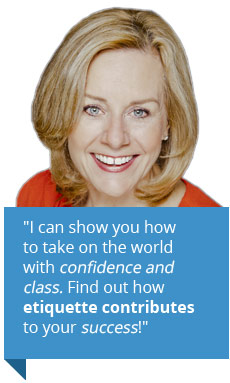The Question of Commitment: Dedication or Obligation?
May 2, 2011 We’ve all heard about “the guy who can’t commit” and the crazy old aunt who “really should be committed,” but beyond the jokes and stereotypes, what does the word commitment mean to you?
We’ve all heard about “the guy who can’t commit” and the crazy old aunt who “really should be committed,” but beyond the jokes and stereotypes, what does the word commitment mean to you?
It seems each person has their own relationship to that word: our understanding of it, our willingness to engage in it, even the level of commitment to our commitments varies widely from one person to the next.
So, I ask you again: What does commitment mean to you? It’s an important question to ask, because how you feel about your commitments has a lot to do with the outcome – not to mention quality of life!
Here’s what I mean:
Define: commitment
1. Feeling dedication and loyalty to a cause, activity, or job; wholeheartedly dedicated
2. To bind or obligate, as by pledge or assurance; pledge: to commit oneself to a promise
These two definitions are both correct… but they feel very different, don’t they? The first seems inspired, voluntary and willing; it is focused and energizing. The second feels heavy with obligation, requiring courage and strength to fulfill a promise. Ugh.
Which definition fits with your understanding of commitment? Do you feel dedicated… or obligated?
Many people hesitate to really commit to what they want, because they’re afraid that if they do, they will be obligated to a promise. What if you can’t keep that promise? What if you truly commit yourself to something… and fail? That kind of relationship to commitment isn’t inspiring; it’s heavy.
For a commitment to feel good, it has to be a challenge you deem worthy, a vision or goal you genuinely aspire to – not something you “should” or “have to” do. This makes all the difference between having to push yourself to honor your commitments, and feeling pulled to step up for them.
That said, even the most compelling commitments … the ones you really feel good about … can sometimes be difficult to honor over time. Sooner or later, many commitments fall prey to the vicious attack of the “Yeah, But.” This quiet traitor shows up every time you feel your commitment waver, and sometimes it brings along its little sister, “Just This Once.” Together they pry open the Door of Doubt.
Did you know that doubt is an opposing force of commitment? As soon as it creeps in, it eats away at commitment, quiet dissolving your resolve from the dark corners of your mind.
That’s why it’s so important to make commitments that feel really good to you, ones that align with your core values, and support your dreams and goals. This makes it so much easier to stay committed, because only one path is the clear path forward. Perhaps Rollo May said it best: “Commitment is healthiest when it is not without doubt, but in spite of doubt.” That’s when you know you’re on the right track.
As so many struggling dieters, divorcees, and relapsing addicts will tell you, making a commitment is not a fail-proof security system – because people are not fail proof. So, it is important to understand that commitment is not a promise to be 100% perfect. It’s about wholeheartedly striving for something that’s important to you, without reservation, and in spite of the challenges you encounter along the way. As Epicurus said, “A captain earns his reputation during the storms.”
“Can you commit to that?” 3 Principles of Commitment
Commitment is like glue, holding together the many pieces of your creation: desire, vision, resources, plans, time and action. Here are a few more factors to keep in mind:
1. Genuine commitment stands the test of time. (Even if you have to re-commit along the way.)
2. In relationships, commitment is a two-way street. You only get it if you are willing to give it.
3. If you feel trapped in your commitment, you will (consciously or unconsciously) look for ways to escape.
Remember: every significant decision is a reflection of your commitments. Look closely, with an honest and open mind, and your deepest commitments will reveal themselves. Are you committed to your freedom, to play, or to feeling responsible? To loyalty? To health? To comfort? Take the time to investigate! This path of inquiry can be immensely helpful… and I promise, all you have to commit is a few minutes.
 Print This Post
Print This Post
Leave a Reply




No Comments Yet
You can be the first to comment!